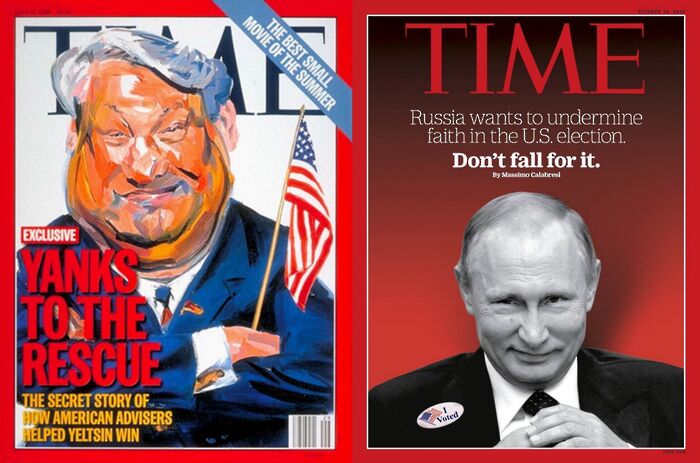The danger of new states
The creation of new states, be it in Europe or Africa, is riddled with risk, argues columnist Naman Habtom-Desta

Earlier this year, Kosovo celebrated ten years since its unilateral declaration of independence. But does it have much else to celebrate? Last year, there were two regions that voted for independence, but no new states came to be. By contrast, 1990-93 saw dozens of new nations emerge, whether in the Baltics, Central Asia, the Balkans, or the Horn of Africa. If the recent past has taught us anything, it is that idealism is insufficient and that the creation of new states should not be welcomed as they once were.
A cursory look at a pre-1914 map of Europe and a contemporary one will reveal two things: borders in the West and the North have remained largely the same, while those in the East have been replaced with a new labyrinth of lines. We are forced to squint in order to read the names, most of which end in -ia (whether Lithuania, Romania, or Slovakia). Generally speaking, the emergence of new states with the fall of the Berlin Wall was heralded. However, the unfavourable aspects are rarely reviewed. Arguably the most peaceful partition in history — the dissolution of Czechoslovakia — was done with the support of only 37% of Slovaks and 36% of Czechs. While the Baltic republics are held up as models of post-Soviet development, one would be hard-pressed to hear about the civil war that raged in the former Soviet republic of Tajikistan, or how Islamist terror struck Russia, emanating from Caucasian separatist aspirations. While Czechs and Slovaks can cross their shared border without noticing a difference, the reality is very different for those living along the Armenian-Azeri border.
“Idealism is insufficient and new states should not be welcomed as they once were”
A striking and dangerous example of the failure of the new states is Kosovo. The landlocked failed state has become the drug, sex, and gun trafficking centre of Europe. Emigration is so high that the government went so far as to establish a Ministry of Diaspora. In addition, its establishment has created a more insecure world due to the precedent it established. Beginning with the NATO intervention in 1999, which lacked a UN Security Council resolution, and concluding with a unilateral declaration of independence by the National Assembly (which is, incidentally, so chaotic that police had to install metal detectors in order to prevent parliamentarians from bringing in smoke grenades to disrupt sessions), the permanence of borders is questioned.
The flexibility of borders through the secession of region does not only threaten the territorial integrity of states. It also exposes them to hypocrisy. Last year, Catalan regional officials organised an independence referendum without the permission of the national government. While Spain has maintained a consistent position regarding Kosovo and Catalonia, the same cannot be said of its European allies, most of which have come to recognise the former whilst swiftly rejecting the latter.
The dangers of new states are not limited to Europe. Indeed, they are perhaps more pronounced beyond our frontiers. The second deadliest war in the world, and the most fatal in Africa, is the four-year-long South Sudanese Civil War. Hundreds of thousands have been killed and millions displaced in what is not only the world’s poorest country but also its newest state. The tragic irony is marked by the fact that its independence was itself a product of the 22 year long Sudanese Civil War. What makes this tragedy almost Shakespearean is the fact that one of the top destinations for South Sudanese refugees is the Republic of Sudan — the very same Sudan that they voted to leave in 2011.
Secessionists are not simply victims of internal instability. In the case of Iraqi Kurdistan, a coalition of veritable states including Iraq, Turkey, and Iran, as well as the international community at large, sought and succeeded in averting Kurdish separatism that would have threatened an already volatile region with the risk of full blown war from the Bosphorus Strait to the Pakistani highlands.
The establishment of new border checkpoints between former neighbours will do little, if anything, to alleviate the issues that the most vulnerable are facing. Whether it is unemployment, food scarcity or any major challenge, wannabe-states should remember that these problems are easier to remedy than the establishment of new ministries or institutions.
 News / Eight Cambridge researchers awarded €17m in ERC research grants27 December 2025
News / Eight Cambridge researchers awarded €17m in ERC research grants27 December 2025 News / Downing investigates ‘mysterious’ underground burial vault 29 December 2025
News / Downing investigates ‘mysterious’ underground burial vault 29 December 2025 Lifestyle / Ask Auntie Alice29 December 2025
Lifestyle / Ask Auntie Alice29 December 2025 Sport / Hard work, heartbreak and hope: international gymnast Maddie Marshall’s journey 29 December 2025
Sport / Hard work, heartbreak and hope: international gymnast Maddie Marshall’s journey 29 December 2025 Interviews / Meet Juan Michel, Cambridge’s multilingual musician29 December 2025
Interviews / Meet Juan Michel, Cambridge’s multilingual musician29 December 2025










